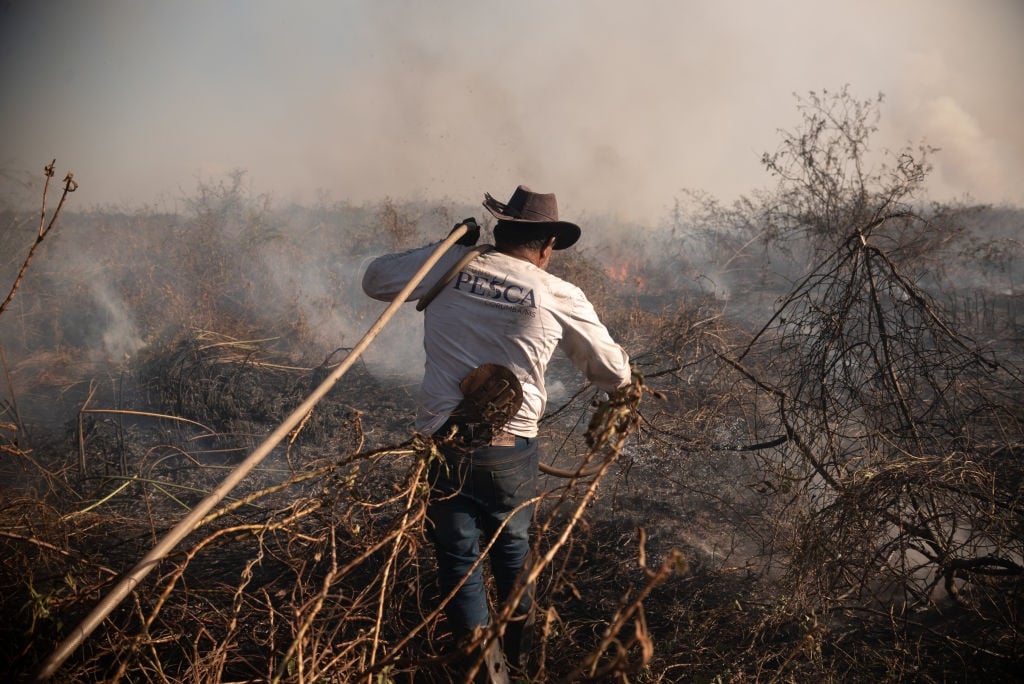From Floods to Fire: Brazil’s Battle Against Climate Change
Brazil, known for its breathtaking landscapes and biodiversity, now finds itself on the frontlines of a climate crisis. The country is grappling with severe environmental challenges, ranging from devastating floods to raging wildfires, illustrating the escalating impacts of global climate change.
A Nation Underwater
In recent months, Brazil has faced unprecedented rainfall, particularly in its southeastern regions. In January 2023, the cities of Belo Horizonte and São Paulo were inundated with torrential downpours, leading to catastrophic floods. Entire neighborhoods were submerged, and emergency services struggled to cope with the rising waters. These floods have not only displaced tens of thousands of residents but have also caused significant damage to infrastructure and agriculture.
The Brazilian government has been swift in its response, deploying military and civil defense forces to assist in rescue and relief operations. However, the severity and frequency of such flooding events have raised concerns about the country’s preparedness and its infrastructure’s resilience.
The Inferno of the Amazon
While parts of the country drown, others burn. The Amazon rainforest, often referred to as the "lungs of the Earth," has seen an alarming increase in wildfire incidents. In the dry season of 2022, satellite data from the National Institute for Space Research (INPE) indicated that fires in the Amazon surged by 30% compared to the previous year. This spike is largely attributed to illegal deforestation and land-clearing activities, exacerbated by prolonged drought conditions.
Experts warn that the loss of the Amazon’s rich biodiversity not only threatens local wildlife but also has global implications. The forest plays a crucial role in absorbing carbon dioxide, and its degradation could accelerate climate change. Environmental organizations have called for stricter enforcement of anti-deforestation laws and greater international cooperation to address this crisis.
Government and Global Response
President Luiz Inácio Lula da Silva, who recently took office for his third term, has promised to prioritize environmental protection and combat climate change. His administration has pledged to reinstate funding to environmental agencies, which had seen drastic cuts under the previous government. Lula’s commitment to reforesting areas lost to illegal logging and improving monitoring systems has been welcomed by environmentalists, though they caution that the road ahead remains challenging.
The international community also plays a critical role in supporting Brazil’s environmental efforts. Global initiatives such as the Paris Agreement emphasize the need for collective action in mitigating climate change. Brazil’s participation in such agreements and its partnerships with other nations and organizations are crucial to reversing the current environmental decline.
The Way Forward
Brazil’s climate challenges are a stark reminder of the broader issues facing our planet. While the government’s renewed focus on environmental protection is a positive step, sustainable solutions require a concerted effort from all sectors of society, including businesses, NGOs, and local communities.
How to Help
Individuals around the world can contribute to these efforts by supporting sustainable products, reducing carbon footprints, and advocating for strong environmental policies. Organizations such as the World Wildlife Fund (WWF) and Greenpeace offer avenues for donations and activism that directly benefit conservation efforts in Brazil and beyond.
For a country as ecologically significant as Brazil, these environmental battles are not just local issues but global ones. Addressing them requires both immediate action and long-term commitment to safeguarding our planet’s future.
For more insights and live updates on Brazil’s environmental situation, visit News24.
By weaving together these diverse elements, the article aims to provide readers with a comprehensive understanding of Brazil’s multifaceted climate crisis and its broad-reaching implications.
